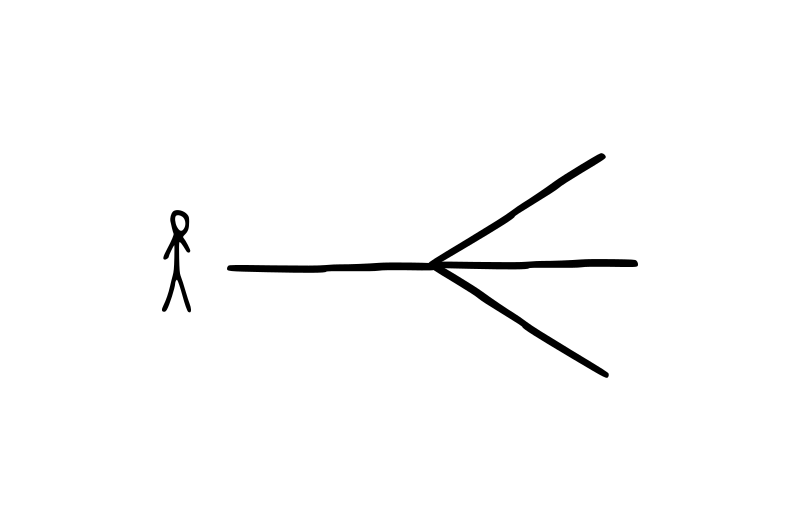The Trivireality

Scroll social media for 5 minutes, and tell me: how many of the posts you see are trivial?
My answer is: most of them. Even if you are careful about who you follow, few posts offer something substantial to chew on.
This is by design. The dominant social platforms are built around the ease of consumption, not the benefit to the user. As such, they are collections of fragments of other people's lives. The more interesting the fragment, the more the algorithms favor it.
The problem is that those fragments typically don't create any coherent narrative that would be sufficiently emotionally charged to produce a change in the heart and mind of the consumer. In other words, they are quite trivial.
Yet, why do so many people spend so much time on social media? With a bit of reason, we're able to see how irrelevant and trivial most posts are. So why do we check these services again and again?
To escape, of course.
Don't worry, I know the next question on your lips.
From existential dread, that's what we want to escape from.
But, where does that dread come from? I hear you ask. How did it arrive in our minds?
Through cultural conditioning available at our fingertips.
Too succinct?
Well, some centuries ago, the news was a local phenomenon. You heard what's new from others at the village pub perhaps. If something was relevant specifically to you, you'd probably get that piece of news from a neighbor. Now, life was no paradise, but our exposure to external information, local, personal, and time-bound.
Jump forward to today, none of the 3 adjectives apply. We can get global, impersonal news 100x a day. Moreover, tragedies always spread fastest, so that's what many of the main stories are about. And that is where the external portion of existential dread is coming from.
There is, of course, an internal portion of it as well, stemming from crises of meaning, character, or circumstance. The difference is that the internal existential dread is more acute than the generalized external existential dread. These two forces interact to supply us with a sufficient dose of dread to be slightly worried, all the time.
Together with this background dread, there's tremendous technological progress happening. Unfortunately, the shared cultural visions of what may be brought about by the advent of those new technologies are also modulated by the filter of general dread. As a result, the future seems a dangerous place to be headed to, which further reinforces the dread.
Which we escape through trivial engagements on social media, where we, of course, see more posts about political and technological catastrophes coming our way... You get the picture.
Now, there's much ado about Virtual Reality, or Augmented Reality. Many of the interactions I'm describing are not exactly augmented, not wholly virtual, but they are trivial and they are an escape from the Real Reality. You could call this whole layer of existence the Trivial Reality, or Trivireality for short.
The Trivireality is a trap. It puts us into a sort of trance where we forget that it's not really relevant to our lives. We just scroll more, because it's the easiest escape we can find. However, there's a different meaning hidden in the word "trivial" that I'd like to explore.
The word "trivial" comes from "trivium," a place where three roads meet, a crossroads. We each find ourselves at this crossroads.
Some choose to remain in the Trivireality, because it's so perversely engrossing. That's not a particularly good course of action, because as I described above, it's full of negative news and it entrances us just enough to not deal with actual reality.
Others choose to isolate themselves totally. To live in a bubble of one's own choosing, ignoring the world at large. This isn't a bad choice. Not at all. At the very least, it doesn't exacerbate the negativity through mindless public overreaction.
But the third road is the one I found most interesting. It lies in recognizing the perils of the possible negative futures, while simultaneously pursuing a positive future of one's own, that if scaled to the society at large would counteract some of the negative forces at play. I speak, of course, of the future of the builders and teachers.
This third road requires an element of awareness of what's going on, but enough detachment to allow the individual to stay centered around one's ability to express themselves and create something meaningful to share with others. It also requires resisting the pull of the comforting triviality of most online interactions, and staying in pursuit of substance: personally meaningful goals.
As you might imagine, the third road is the one I choose.
Which road are you on?